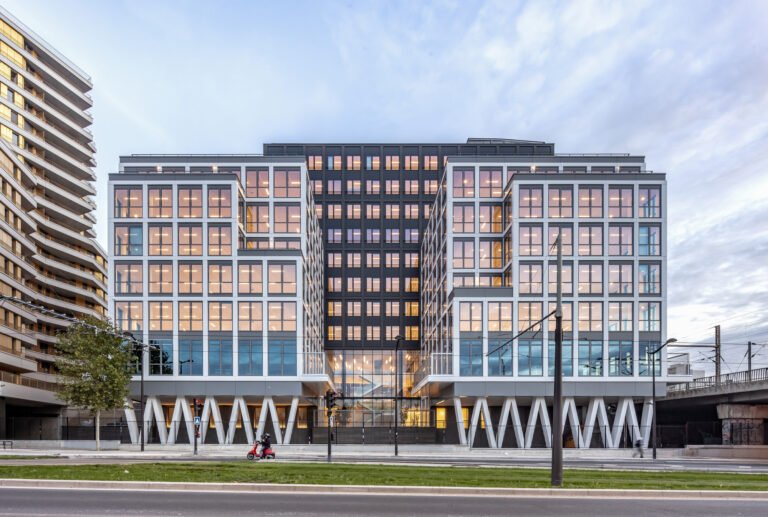City Omnibus and City Design Discussion board search candidates for New Metropolis Critics fellowship program
The Architectural League of New York and its city-making-focused online publication, Urban Omnibus, have partnered with the Urban Design Forum to commence a call for applicants for the New City Critics fellowship program. Launched on February 3, the call is seeking a total of five critics from underrepresented backgrounds who will form the inaugural cohort for the 18-month program, which, per the launch announcement, seeks to “empower new, fearless, and diverse voices to challenge the ways we design, plan, and develop our cities” through mentorships, guest lectures, networking, and the production of new work to be published in Urban Omnibus and other leading publications covering cities and the built environment.
New City Critics was established in honor of the late Michael Sorkin.
The process is open to applicants of all stripes across a range of mediums—writers, scholars, designers, artists, advocates, curators, organizers, podcasters, organizers, photojournalists, and more—although all potential fellows must live or work in the New York City metro area for the duration of the program and demonstrate a commitment to “producing critical work and projects about the urban experience and the design of cities” to be considered. As Urban Omnibus explained, “New City Critics is intended for people who do not see themselves or their experiences reflected in the fields of criticism, urbanism, and design today.” The continually shrinking field of architectural criticism and urban thought has historically been dominated by a handful of critics who are largely older, white, and male. The aim of New City Critics is to expand this field through the support of invaluable new voices:
“New City Critics is for a criticism of city design and development that reflects the people who live in cities. We need more informed and sustained examination of citymaking in media beyond small professional circles, for a broader public. Housing, workplaces, infrastructure, public spaces and monuments define the contours of our lives. They demand critical attention and a critical imagination expressed through novel formats and in new forums. Our goal is to equip a new generation of critics with new skills and a meaningful network, to conceive and carry out potent projects and advance the work they want to see in the world.”
An online information session will be held on February 28 for those interested in learning more. The application period closes on March 23 at 11:59 pm.
Beginning this coming June and lasting through October 2023, the inaugural New City Critics cohort will convene twice per month for evening sessions in which they will either develop and workshop new editorial projects or participate in conversations with a diverse slate of guest speakers. The duration of the program will be broken out into two phases: during the first, fellows will prepare an editorial project for publication in Urban Omnibus; the second phase will entail preparing a second major feature for another publication, with networking support provided by The Architectural League and Urban Design Forum.
Sessions are anticipated to be held in-person unless future public health mandates require a shift to a virtual or hybrid format, and each selected fellow will receive a $15,000 stipend for their participation along with a travel or research stipend of $2,000. An allowance of up to $2,500 will also be provided to help cover project expenses.
Applicants for the inaugural cohort will be selected by members of the New City Critics advisory board. Members include Garnette Cadogan, the Tunney Lee Distinguished Lecturer in Urbanism at the School of Architecture and Planning at MIT; artist, writer, and podcaster Dario Calmese, who in 2020 became the first Black photographer to shoot the cover of Vanity Fair; Vinson Cunningham, a staff writer and theater critic at The New Yorker; Curbed editor and AN alumna Sukjong Hong, and Los Angeles Times arts and urban design columnist Carolina Miranda.
More on the application process and the program itself can be found here.


